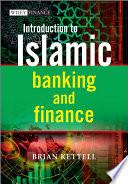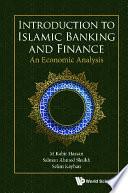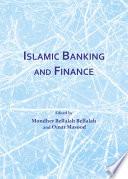Its Development and Future
Islamic Banking and Finance in South-East Asia by Angelo M Venardos has been a “must read” since its first edition in 2005 and has already been translated to Arabic. Now in its 3rd edition, the book offers important updates you can look forward to, starting with the foundations of Islamic banking, developments and issues. The reader is then treated to a timely survey of Islamic banking in five South-east Asian countries. Most of these chapters have been completely revamped from the last edition. One additional chapter has been added on Islamic Succession Planning, which introduces an increasingly essential aspect of Muslim life — that of managing one's wealth now and in the afterlife. Whether you are new to the topic or a practitioner in the industry, you will appreciate the accessible way in which the book is written. According to the Asian Journal of Comparative Law, the book gives a broad overview yet “manages to achieve this in a rather slim volume while providing depth of analysis at the same time”. Contents:Islamic HistoryShari'ah Law and Islamic JurisprudenceIslamic Commerical LawIslamic Financial ProductsIssues and Challenges of Islamic Banking TodayIslam in South-East AsiaColonial Legacies: Islam and State Law in South-East AsiaMalaysia: A Leading Islamic Finance JurisdictionIndonesia: An Islamic Banking Giant AwakensLabuan: A Growing Niche in Islamic FinanceBrunei: Size Really Doesn't MatterSingapore: Small But SignificantAn Overview of Islamic Succession PlanningConclusion Readership: Investors; bankers; financial industry players; upper-level undergraduates and post graduate students in Islamic studies, banking and finance. Keywords:Islamic;Banking;Finance;South-East AsiaKey Features:The first book of its kind to explain to lay persons, Muslims and non-Muslims, the mystique surrounding Islamic banking and financeDepicts clearly how the market has developed in South-East AsiaProvides a timely survey of Islamic banking in five South-East Asian countriesReviews:“The book provides essential insights on the development of Islamic finance in South-east Asia. Its analysis of Islamic finance enables the reader to comprehend the growing importance of Islamic finance that transcends cultural and religious diversities within this region.”Dato' Dr Nik Norzrul Thani Chairman Zaid Ibrahim & Co “The author's timely update to his work reflects the increasing importance of Islamic finance in the world today and the significant role South-east Asia continues to play in its development. Angelo Venardos' insightful analysis provides a very helpful guide to understanding the salient building blocks of the industry and guides the reader towards what to expect in the future.”Daud Vicary Abdullah, CIFP Global Islamic Finance Leader Deloitte Corporate Advisory Services Sdn Bhd “The book is well researched, with materials well arranged and supported by research to ensure the book is easily understood by readers at all levels. The book has the potential to be a comprehensive reference for the research community in understanding the issues behind Islamic finance.”Dr Aimi Zulhazmi Abdul Rashid Managing Director Draz9 Advisory Services Bhd “Specialist in Shariah Incline Offshore Trusts” Review of the Second Edition: “… his insightful elucidation on the subject has nevertheless drawn widespread acclaim from critics all over the world. The first book of its kind to lay bare the mystique surrounding Islamic banking and finance, this highly-regarded book has even attracted interest from a leading Islamic university in the Middle East, an extraordinary feat considering he is a relative outsider compared to the many Arabs who have commented on the topic.”BusinessCraft Reviews of the First Edition: “This volume will be of value to anyone interested in the history, methods, and rules of Islamic finance in Southeast Asia. It is written by a non-Muslim who views the subject through a different prism, which makes the book unique.”Choice “The author has done an excellent job of taking the reader through a variety of linked elements as they relate to Islam, e.g., history, law, economic development, culture, finance, banking … which have then been described within a variety of countries in the South-east Asian region.”Charles F Steilen Hawaii Pacific University, Honolulu “Very well-written and informative … The author succeeds where most writers on this subject fail. He has produced a balanced and well-written study, which at no point in the text slips into value judgement. In this sense, he sets a standard for future studies of this ever-changing field. Angelo M Venardos's book is about a mature modern banking system and the challenges of adapting to a changing business environment characterized by the globalization of the financial industry and the increasing sophistication of banking business.”Mamouda Mbemap Editor Journal of Restructuring Finance “Readers will appreciate the accessible and readily comprehensible way in which the book is written. The author seeks to give a broad overview of the landscape of Islamic banking in Southeast Asia. To his credit, he manages to achieve this in a rather slim volume while providing depth of analysis at the same time.”Asian Journal of Comparative Law “It provides an excellent background, not only to the development of Shari'a banking principles, but also with reference to the history of Islam in South East Asia … This is a much needed guide for those interested in the evolution of Islamic banking and finance in South East Asia. It outlines not only the intricacies of a technically complex area of the financial markets in this important region.”Step Avanti
Islamic Banking and Finance in South-East Asia by Angelo M Venardos has been a “must read” since its first edition in 2005 and has already been translated to Arabic.Now in its 3rd edition, the book offers important updates you can look ...










